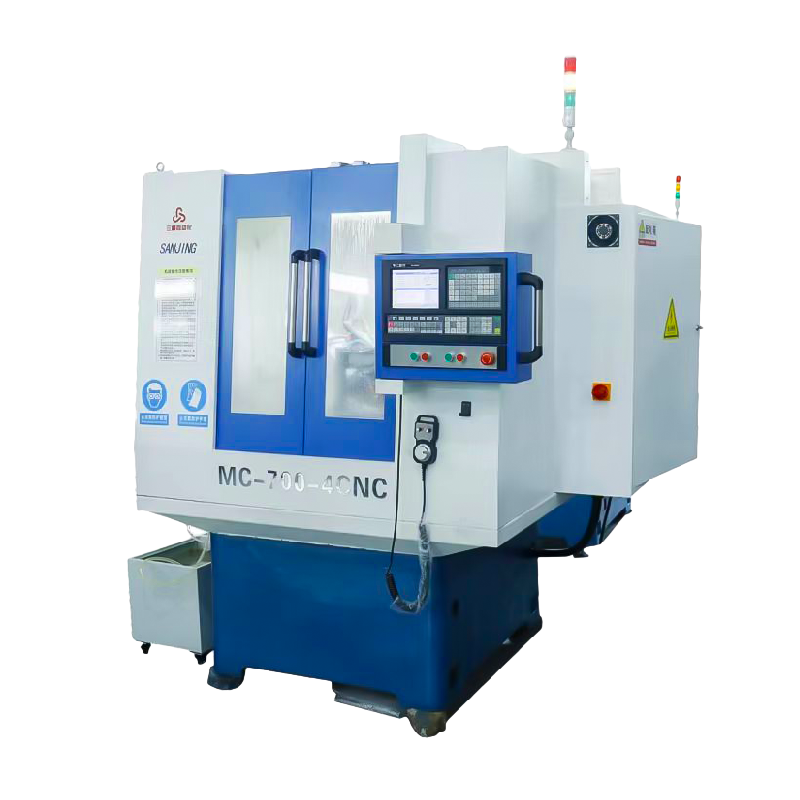Overview of CNC Milling Machines
Computer Numerical Control (CNC) milling machines have revolutionized modern manufacturing, providing precise, efficient, and automated operations. By translating drawings into digital commands, these machines manipulate tools to perform intricate tasks. Manufacturers use various types of CNC milling machines depending on the complexity and requirements of their projects.
Horizontal Milling Machines
Defining Features and Advantages
Horizontal milling machines have horizontally oriented spindles, which allows for the placement of multiple cutting tools along the spindle's length. This configuration is particularly advantageous for projects requiring the heavy cutting of bulky and rigid materials.
Applications and Specifications
- Ideal for projects requiring side and straddle milling.
- Typically have table sizes ranging from 1600 x 360 mm to 2500 x 600 mm.
- Allow for the machining of large surface areas efficiently.
Five-Axis CNC Machines: Versatility and Precision
Capabilities and Benefits
Five-axis CNC machines introduce two additional rotational axes, enabling the production of highly complex parts with fewer setups. This versatility reduces lead time and increases the precision of intricate designs.
Industry Applications
- Commonly used in aerospace and automotive sectors for creating complex geometries.
- Allows for simultaneous movement along these axes: X, Y, Z, and two rotational axes.
- Work envelope capabilities are typically 600 mm x 400 mm x 500 mm.
CNC Lathes: Precision in Rotational Symmetry
Basic Operation and Features
CNC lathes perform operations by rotating workpieces and using stationary cutting tools to sculpt precise cylindrical shapes. Known for their efficiency, CNC lathes offer significant improvements in precision over manual versions.
Specifications and Use Cases
- Perform operations such as turning, boring, and threading.
- Working diameters typically range from 25 mm to 300 mm.
- Preferred in manufacturing shafts, bearings, and other round components.
CNC Routers: Crafting Complex Designs
Operational Mechanism
CNC routers cut a variety of materials by following programmed paths, making them ideal for woodworking and other softer materials. Their high-speed operation reduces waste and boosts productivity for complex designs.
Functional Specifics
- Can operate on three axes with high precision.
- Commonly used for prototype models and artistic projects.
- Effective for materials such as wood, foam, and acrylic.
Plasma Cutting CNC Machines
Technical Overview
Plasma cutting machines utilize a high-speed plasma torch to cut through electrically conductive materials. They provide clean cuts essential for large-scale industrial manufacturing.
Applications and Material Capacity
- Well-suited for cutting thick materials like steel and aluminum.
- Thickness capacities range from 6 mm to 150 mm.
- Speed efficiency translates to lower operation costs for heavy machinery manufacturing.
CNC Drilling Machines: Accuracy in Cylindrical Holes
Precision and Functionality
CNC drilling machines are specialized for creating cylindrical holes with high precision. Integral to industries like aerospace and automotive, they ensure that components fit together seamlessly.
Key Parameters
- Compatible with a range of materials, including metals and composites.
- Hole diameters vary from 0.5 mm to 100 mm with exact tolerances.
- Drilling speeds can reach up to 1000 rpm, enhancing production rates.
Laser Cutting CNC Machines: Precision and Versatility
Technology and Applications
Laser cutting machines harness concentrated light beams to slice through materials from metal to delicate fabrics. Their precision is unmatched, making them invaluable in electronics and fashion industries.
Operational Advantages
- High precision with typical tolerances of ±0.1 mm.
- Fast and efficient, reducing waste and operating costs.
- S able to process a variety of materials with thicknesses up to 25 mm.
Water-Jet Cutting CNC Machines
Mechanics and Benefits
Water-jet cutting machines utilize high-pressure water streams, often mixed with abrasives, to cut through materials sensitive to heat. Their versatility makes them useful across varied industries.
Capabilities and Materials
- Can handle materials ranging from metals to ceramics.
- Precision cutting with tolerances as tight as ±0.2 mm.
- Thickness capacities up to 300 mm, accommodating large projects.
EDM and Grinding CNC Machines
Precision and Applications
Electrical Discharge Machines (EDM) and grinding machines are vital for shaping materials with exact precision. EDM uses electrical sparks, while grinding machines achieve desired finishes through abrasive wheels.
Technical Specifications
- EDM machines can create shapes with tolerances of ±0.005 mm.
- Grinding machines achieve surface finishes as smooth as Ra 0.2 μm.
- Commonly used for mold-making and achieving high-quality surface finishes.
Boyue Provide Solutions
Boyue offers comprehensive solutions catering to the diverse needs of the CNC machine market. As a leading wholesale provider, Boyue ensures that manufacturers have access to the best machinery, tailored to their specific requirements. With expertise in the latest CNC technologies, Boyue guarantees unparalleled precision and efficiency in your manufacturing processes. Whether you need guidance on machine selection or turnkey solutions for your production line, Boyue stands ready to support your business objectives, ensuring high-quality outputs and optimal operational efficiency.
User hot search: precision cnc milling
Post time: 2025-08-25 12:32:02


